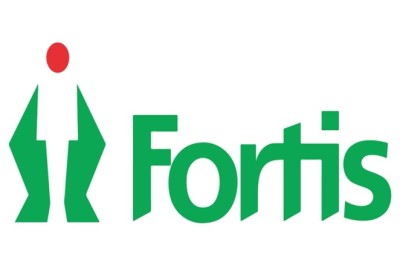
DUBAI, United Arab of Emirates: Malaysia far exceeded its expectations when it attracted USD108.34 million (AED397.94 million) in potential trade and investments during the Sustainable Agriculture Week at EXPO 2020 Dubai.
The Ministry of Agriculture and Food Industries Malaysia (MAFI) hosted the week, which ran from February 21 to 26, with the Malaysian Bioeconomy Development Corporation (Bioeconomy Corporation), as the implementing agency.
The week saw close to 40,000 visitors who attended the Malaysia Pavilion and participated in Sustainable Agriculture programmes, including its exhibition, tropical fruit showcase, cooking demonstrations, product launches, pocket talks, and MoU exchanges. The week also attracted delegates from Senegal, Ivory Coast, Namibia, Japan, India, and Slovakia who were interested in exploring Malaysia’s sustainable agriculture.
This resulted in 20 companies securing 70 business leads with other international partners at the expo besides the 12 Memorandum of Understanding (MoUs) exchanged with the United Arab Emirates (UAE), Germany, Sweden, Maldives, and Egypt.
In addition, over 40 companies were involved in digital business matching through MAFI’s microsite www.mafi-events.com. More business activities are expected to continuously happen through the microsite beyond Sustainable Agriculture Week.
Secretary General of MAFI, Dato’ Haslina Abdul Hamid said the achievements recorded during the week hold a bright future for sustainable agriculture in Malaysia and prove that other nations, especially the UAE, are interested to work closely with Malaysia in developing sustainable agriculture. She added that bilateral cooperation on agriculture between Malaysia and the UAE has opened up the possibilities for further growth in the agriculture trade.
“Both countries are giving importance on strengthening food security to safeguarding food supply for their citizens and residents.
“This is reflected through UAE’s introduction of UAE National Food Security Strategy 2051 and the various initiatives and programs that comes under this strategy.
“On the same note, Malaysia has its own initiative to strengthen food security through her Cabinet Committee for National Food Security Policy. Through this committee, various programs and initiatives have been outlined to increase food security in Malaysia.
“In this matter, Malaysia hopes new collaboration with UAE will enable to bridge the gap in its effort to overcome the current limitations and difficulties to produce food due to climate change,” said Haslina when summing up the targets and achievements at the end of the Sustainable Agriculture Week today.
EXPO 2020 Dubai was initially postponed owing to the Covid-19 pandemic. With the easing of travel restrictions, the expo was subsequently launched on October 1 last year and will run until March 31 this year.
New partnerships and confirmed projects
New forms of private and public partnerships between Malaysia and UAE were formed during Sustainable Agriculture week. Over the course of business matching activities throughout the week, 20 exhibitors from Malaysia attracted 70 business leads with RM143.75 million worth of potential sales in various areas of agriculture, including agrofood, smart farming solutions, smart urban farming, agri-biotechnology, waste-to-wealth, aquaculture, and biodiversity to wellness.
Among the new confirmed projects inked from MAFI’s meetings with UAE organisations include the signing of MoU between Malaysian Agricultural Research and Development Institute (MARDI) and the International Centre of Biosaline Agriculture (ICBA) on February 21 in conjunction with Sustainable Agriculture week.
“With ICBA, Malaysia’s main concern is more on research and development (R&D) joint collaboration specifically in sustainable livelihoods and food security in marginal environment.
“Both parties have also reached consensus on joint R&D projects to improve rice production at salt stress affected areas,” said Haslina.
Discussions during Sustainable Agriculture week also saw a collaboration being struck in smart agriculture system with Abu Dhabi Agriculture & Food Safety Authority (ADAFSA), whereby Malaysia can work together with ADAFSA linkages in developing technologies in improving irrigation and focus on climate change projects.
Haslina stated that the collaborations and discussions offered an opportunity for both countries to mutually benefit from each other’s wealth of knowledge and experiences on the best available science, investment, and adaptation at community and country level to ensure food security.
“As for Malaysia’s view, we need to accelerate the transition to sustainable food and agriculture with research and technologies development. UAE’s agriculture system could also benefit Malaysia in sustainable agriculture in future.”



















Facebook Conversations
Disqus Conversations